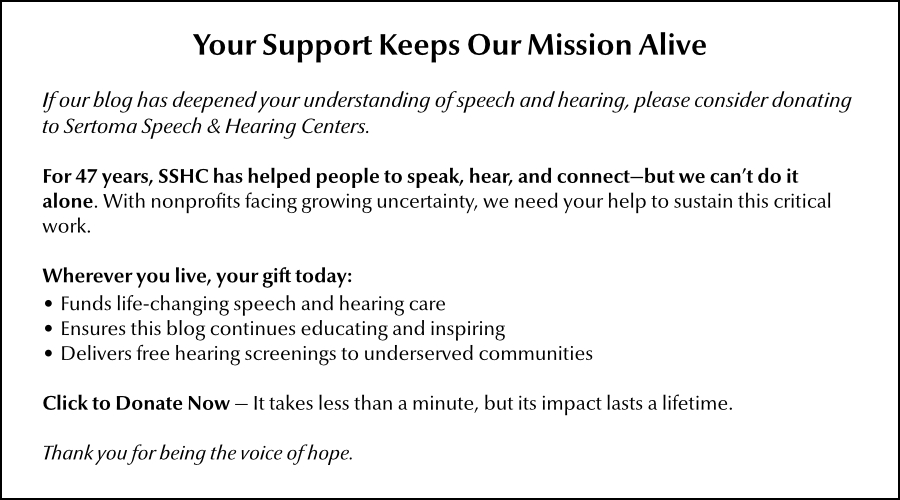Conversing in a noisy restaurant isn't just difficult for many older adults - it's nearly impossible. Nonetheless, innovative research from Northwestern University, spearheaded by Nina Kraus, indicates that hope exists. Through dedicated practice, aging brains can learn to hear better in noisy environments.
Why it matters
This discovery could revolutionize how we approach age-related hearing difficulties, especially given recent research linking hearing loss to dementia in elderly populations. The implications for maintaining cognitive health and social connections in our aging population are significant.
The big picture
Age-related hearing problems aren't just about the ears. While some hearing loss comes from deteriorating sensory cells, a significant part of the problem is how our aging brains process sound. As we get older, neural slowing makes it harder to distinguish similar consonant sounds like "b," "p," "g," and "d," especially in noisy environments.
"Neural slowing especially affects our ability to hear in a noisy background because the sounds we need to hear are acoustically less salient and because noise also taxes our ability to remember what we hear." —Nina Kraus, PhD, Director Neuroscience Laboratory, Northwestern University

By the numbers:
- Study participants: 67 adults aged 55-70 years
- Training duration: 40 hours over 8 weeks
- Results after training:
- 20% improvement in word understanding
- 15% increase in processing speed
- 50% boost in neural timing
- The control group showed no improvement
How it works
The research team used a commercial program called Brain Fitness to train participants' brains. The exercises focused on helping people identify different speech sounds and distinguish between similar-sounding syllables with background noise present. Participants listened to words and sentences amid different levels of background noise and repeated what they heard.

The takeaway
While the training didn't restore participants' hearing to young adult levels, it greatly enhanced their ability to understand conversations in noisy environments—something that had been impossible for many before the study. Scientists are investigating how long these benefits last and whether the program could help people with more severe hearing loss or dementia.
Dr. Frank Lin from Johns Hopkins University (not involved in the research) commented on the importance of the study:
"We currently think that peripheral, age-related hearing loss could contribute to cognitive decline and dementia through two mechanistic pathways—social isolation and cognitive load. This study is tremendously important given the aging of the population and our need to identify novel and effective interventions to reduce age-related cognitive and functional declines in older adults."
Healthy hearing starts here
Healthy hearing starts with a free 15-minute hearing screening by an audiologist.
★ Call 708-599-9500 to schedule your free screening.
★ For facts about hearing loss and hearing aid options, download The Hearing Loss Guide.
★ Sign up for our newsletter for the latest on Hearing aids, dementia triggered by hearing loss, pediatric speech and hearing, speech-language therapies, Parkinson's Voice therapies, and occupational-hearing conservation. We publish our newsletter eight times a year.
Don't let untreated hearing loss spoil your enjoyment of life.
Crest Hill, IL - 630-633-5060 | Palos Hills, IL - 708-599-9500


